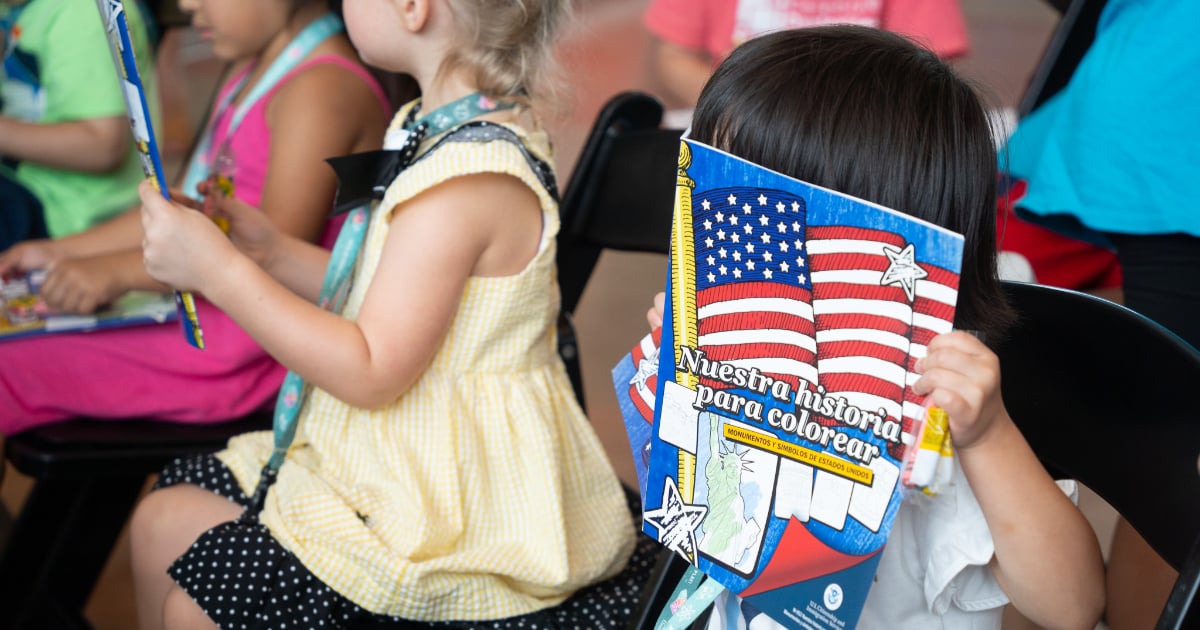A Cuban migrant, who is 30 weeks pregnant, is experiencing heightened anxiety due to her high-risk pregnancy. She fears that her baby may not secure U.S. citizenship if a specific executive order by President Donald Trump goes into effect. This order aims to limit birthright citizenship for children born to undocumented or temporary immigrants. "I'm terrified that my baby will be born without citizenship, as that would mean she isn't a citizen of this country. Seeking Cuban citizenship is not an option for us, as we are fleeing from there," shared the woman, identified only as Bárbara, with The Associated Press. "I have no idea what future awaits my baby. The thought of her being born stateless is horrifying," she added.
Currently residing in Kentucky, one of the states that hasn't challenged Trump's executive order, the 35-year-old woman finds herself particularly vulnerable if the Supreme Court sides with the government.
The Legal Threat and Its Potential Impact
Federal courts in various states have thus far blocked the executive order. However, the Trump administration has appealed to the Supreme Court, seeking to confine these rulings to only the direct plaintiffs. This could potentially allow states like Kentucky to deny citizenship to similarly born children. Such a scenario might lead to a "confusing patchwork" of laws based on state, with the possibility of two babies born in the same hospital on the same day having different legal statuses.
Barbara, formerly a lawyer in Cuba, fled the country in 2022 with her husband, four-year-old daughter, and parents due to religious persecution. The entire family is currently pursuing political asylum in the U.S. They have aligned themselves with the Asylum Seekers Advocacy Project, a group that has brought legal challenges to secure birthright citizenship, potentially offering them some judicial protection.
"I don't want my daughter to grow up in a society that excludes her. As a citizen, she would have numerous rights. I'm uncertain about how many places she would be barred from without citizenship," Bárbara stated.
Debating the Fourteenth Amendment
Trump's order seeks to reinterpret the Fourteenth Amendment of the Constitution, which states: "All persons born or naturalized in the United States, and subject to the jurisdiction thereof, are citizens of the United States and of the State wherein they reside." Since the 1898 Wong Kim Ark case, this clause has been understood to guarantee citizenship to anyone born on U.S. soil, regardless of their parents' immigration status, with exceptions like diplomats or enemies during hostile occupations.
Trump and his supporters argue that individuals who are in the country unlawfully or temporarily are not "subject to the jurisdiction" of the U.S., and thus their children should not automatically receive citizenship. In his order, Trump described birthright citizenship as "an invaluable and profound gift."
A Nationwide Legal Battle
The Department of Justice has focused its appeals to the Supreme Court on curtailing the national reach of judicial orders issued by federal judges, which they deem excessive. "The need for this Court's intervention has become urgent, as universal injunctions have reached tsunami proportions," wrote Solicitor General D. John Sauer.
Of the nine justices on the high court, at least two—Clarence Thomas and Neil Gorsuch—have expressed opposition to nationwide injunctions. Other justices may be inclined to review this practice.
However, New Jersey Attorney General Matt Platkin, who is leading one of the lawsuits against the order, believes this is not the appropriate case to discuss such injunctions. He argues that the executive order signed by Trump in January openly contradicts established jurisprudence. "I believe this is a very imperfect vehicle to raise the issue of national injunctions... because it's clear that the Fourteenth Amendment applies uniformly across all states if one is born here," he stated.
Beyond Citizenship
Birthright citizenship is just one of several immigration policies the Trump administration is attempting to implement through emergency measures. Other proposals include eliminating humanitarian parole for over 500,000 individuals from Cuba, Haiti, Nicaragua, and Venezuela, and rescinding temporary legal protections for approximately 350,000 Venezuelans.
Additionally, the government continues to face legal challenges in its attempts to use an 18th-century law—the Alien Enemies Act—to swiftly deport alleged gang members to a prison in El Salvador.
As of now, Bárbara is waiting amidst medical appointments and asylum processes, while the Supreme Court decides whether her daughter, born on U.S. soil, will be recognized as a full-fledged citizen.
FAQs on Birthright Citizenship and Legal Challenges
What is birthright citizenship?
Birthright citizenship is the policy that grants automatic citizenship to any person born within a country's borders, regardless of their parents' nationality or immigration status.
How could Trump's executive order affect birthright citizenship?
The order seeks to limit birthright citizenship to exclude children born to undocumented or temporary immigrants, challenging the longstanding interpretation of the Fourteenth Amendment.
What are the potential consequences if the order is upheld?
If upheld, the order could create a patchwork of laws across states, leading to inconsistencies where children born in similar circumstances have different citizenship statuses.
